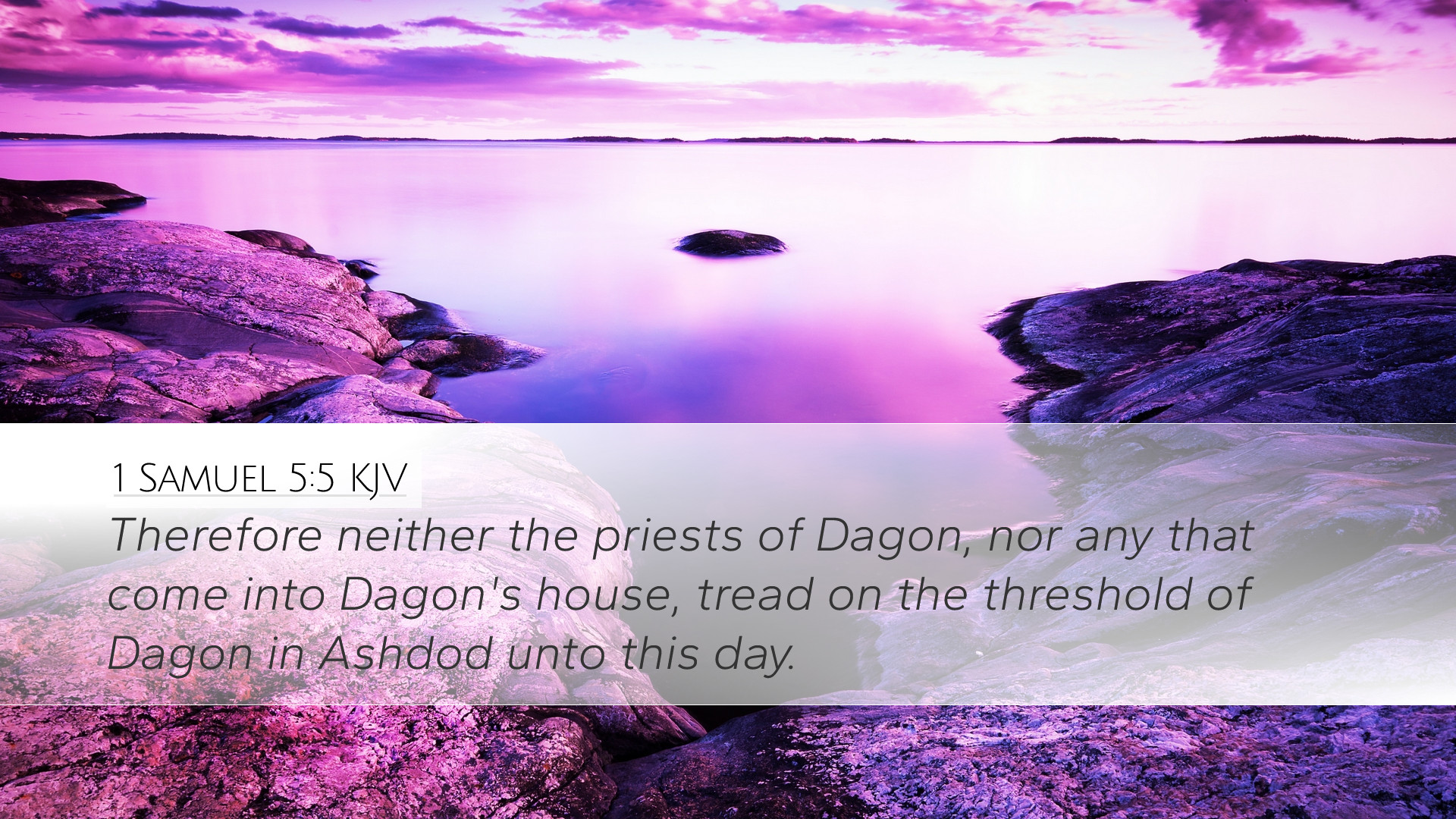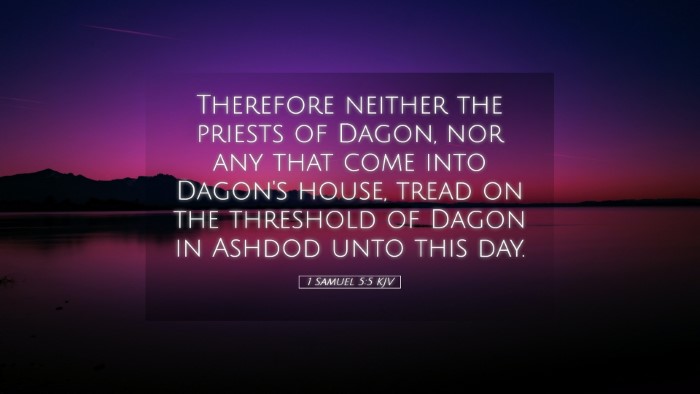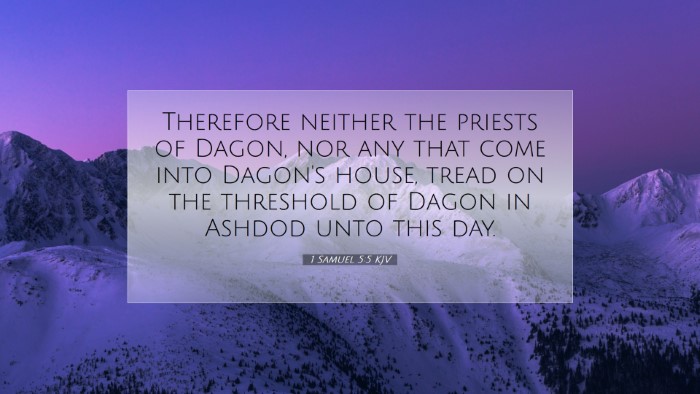Commentary on 1 Samuel 5:5
Verse Text: "Therefore neither the priests of Dagon, nor any that come into Dagon's house, tread on the threshold of Dagon in Ashdod unto this day."
Introduction
This verse appears in the context of Israel's loss to the Philistines, leading to the capture of the Ark of the Covenant and its subsequent placement in the temple of Dagon, the Philistine god. This incident highlights God's sovereignty and the futility of idolatry as demonstrated through a series of remarkable events.
Historical Context
The narrative of 1 Samuel reflects a tumultuous period in Israel's history, where the Israelites faced oppression from their enemies, notably the Philistines. The Philistines, seeking to undermine Israel further and demonstrate their superiority, took the Ark, believing it would serve them as a trophy.
The Ark of the Covenant
The Ark, representing the presence of God, was thought to be a powerful object by the Israelites. However, its capture reflects a deeper spiritual state and God's judgment upon Israel for their disobedience. Within the Philistine perspective, placing the Ark beside Dagon symbolizes a triumph over the God of Israel.
The Irony of Idolatry
In this scene, the powerlessness of Dagon becomes evident when he is found fallen before the Ark (1 Samuel 5:2-4). The striking contrast emphasizes the true nature of God versus false gods. Matthew Henry notes that the fall of Dagon signifies the ultimate failure of idolatry, showing that no false god can stand in the presence of the Almighty.
-
Albert Barnes points out the significant meaning of Dagon's fall: it illustrates that the Philistines, despite their apparent victory, ultimately face the truth of God's supremacy.
-
Adam Clarke elaborates further on this, suggesting that the acts of God involved in this event serve as a warning against idolatry, urging both Israelites and Philistines to turn from their false worship.
Significance of the Threshold
The phrase regarding the threshold of Dagon's house carries substantial meaning. The priests' refusal to tread upon this threshold symbolizes their acknowledgment of divine rejection and the recognition of something far greater than their idol. This habitual avoidance serves as both a cultural and religious response to the events that transpired.
Symbolism of the Threshold
The threshold represents a boundary between the divine and the profane. By abstaining from stepping on it, the priests and followers recognized the sacredness that had overtaken their temple due to the overwhelming power displayed by the God of Israel.
Henry highlights how this act serves as a perpetual reminder to the Philistines of their defeat and the invincibility of the God who resides in the Ark, impacting their religious practices moving forward.
Theological Insights
From a theological perspective, 1 Samuel 5:5 invites reflection on God's sovereignty, the reality of judgment against false gods, and the steadfastness of His presence. The account reminds readers that God's power cannot be confined or controlled, contrasting sharply with human attempts to manage or manipulate divine realities.
Idolatry in Modern Context
The issues of idolatry and misplaced trust continue to resonate today. Barnes remarks that every culture faces the temptation of creating 'Dagon' in various forms—whether in material possessions, ideologies, or personal ambitions—misleading individuals from seeking the true God.
Clarke warns that the dangers of contemporary idolatry might manifest through distractions and modern-day 'gods' that lure believers away from a full commitment to God. This passage serves as a wake-up call to examine the objects of one's devotion and faith.
Final Reflections
The enduring lesson of 1 Samuel 5:5 is the declaration of God's supremacy over all that His creation venerates. It underscores the futility of competing with the divine and serves as a foundation for building an authentic relationship with God, free from the trappings of idolatry.
For pastors, scholars, and students of the Bible, this text invites deep meditation on the character of God, the reality of spiritual warfare, and the personal implications of idolatry in contemporary worship. It challenges us to reassess our own thresholds—what we permit to enter our lives—and to ensure that our devotions align with the truth found in Scripture.


